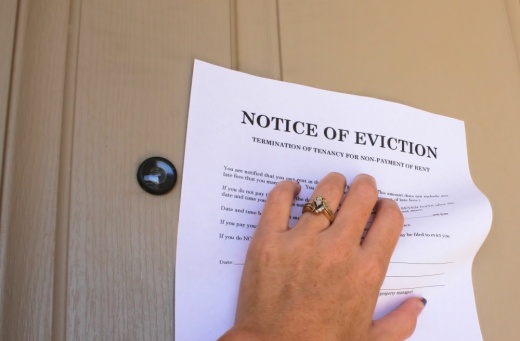Precinct 3 Commissioner Tom Ramsey and Precinct 4 Commissioner Jack Cagle were not in attendance for the vote.
The $4 million will be split into $2 million of funding in 2023 and $2 million in 2024, and applicants will be able to apply for funding for an initial two-year period, according to agenda documentation.
The funding will augment the county’s $1 million housing and legal services initiative, which was approved by commissioners in August 2021 in anticipation of rising numbers of evictions following the end of the Centers for Disease Control and Prevention moratorium on evictions.
Speakers at the Sept. 27 meeting were supportive of the eviction defense funding but urged the county to go further.
“$4 million is not enough to cover all of Harris County, not even for a year,” said Julia Orduña, the southeast Texas regional director for Texas Housers, a nonprofit advocacy organization for low-income families. “It is the tip of the iceberg and a step in the right direction but leaves many tenants without access.”
‘Eviction epidemic’
The initial $1 million program was administered by Lone Star Legal Aid, a nonprofit law firm providing free legal services. Dana Karni, the litigation director for eviction right to counsel at Lone Star Legal Aid, told Community Impact that Harris County has been struggling with an eviction epidemic since before the impacts of COVID-19.
A dashboard by data consulting science firm January Advisors showed 60,389 eviction cases were filed in Harris County between Jan. 1-Sept. 30, totaling more than $151.4 million in claims. Defendants received assistance from attorneys in just 1.65% of those cases.
Adrienne Holloway, executive director of the Harris County Community Services Department, told Community Impact the limited legal representation reflects the idea that renters who are facing eviction most likely do not have the resources to pay for an attorney.
“It's probably very cost prohibitive to seek the appropriate representation,” Holloway said. “What we are providing at no cost is a much-needed resource for people who find themselves cash-strapped.”
With this new round of funding, Holloway said her department is looking to target renters who make 65% of the area median income level or below to provide free legal services. She added the program has broader implications than homelessness prevention.
“We can prevent somebody from losing their home, but [the program] also hopefully helps them not fall too significantly into a poor credit situation, which can hurt them in some other opportunities to secure housing. ... We know how difficult it can be to repair credit,” Holloway said.
And with two successive years of $2 million, Karni said the funding will make the program more sustainable, in turn holding “rogue landlords” accountable more often and contributing to a greater understanding of tenant protections.
“We’re starting to see buy-in from other stakeholders,” Karni said. “The more we’re able to be in courts and represent tenants who are being evicted, especially for nonpayment of rent, ... the greater the likelihood is that there’s an education process to the entire community.”





